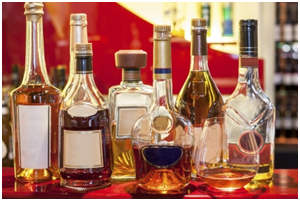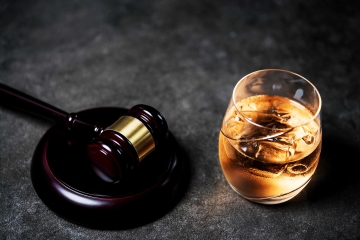Table of Contents
 Anyone intending to start a business that sells alcohol in the state should be familiar with Florida liquor laws, rules, and regulations governing this lucrative sector.
Anyone intending to start a business that sells alcohol in the state should be familiar with Florida liquor laws, rules, and regulations governing this lucrative sector.
For starters, the type of liquor license that your business has will dictate how you sell alcoholic beverages at the establishment. For example, restaurants that sell food alongside liquor require a different liquor license than bars that deal exclusively with alcoholic beverages. Each license type comes at a different cost.
License Liquor Outlet offers expert up-to-date license information, advice, and assistance in getting the right liquor licenses for your business model and liquor license financing.
The Right Application Process through Florida Liquor Laws
When you apply for a liquor license in Fort Lauderdale or anywhere else in Florida, the local Alcoholic Beverages and Tobacco Bureau office handles your license request. The process begins by correctly filling out application forms that you can obtain from the ABT website or your local office. You also need to produce copies of relevant supporting documents, including a government-issued ID, valid business registration certificate, health and safety compliance certification, and more. However, the very first step to complying with Florida liquor laws in your licensing journey is to find out which specific liquor license suits your particular business model.
Following Florida Liquor Laws In Your Business
 As mentioned at the beginning, how your business establishment offers alcoholic beverages to customers determines which liquor license category best applies to your operation. For example, restaurants must comply with three Florida liquor laws in order to qualify for a Special Food Liquor license or SFS. The requirements are:
As mentioned at the beginning, how your business establishment offers alcoholic beverages to customers determines which liquor license category best applies to your operation. For example, restaurants must comply with three Florida liquor laws in order to qualify for a Special Food Liquor license or SFS. The requirements are:
- Over 51% of the total annual revenue should come from the sale of food and non-alcoholic beverages
- The business premises should have an entire floor space of between 2,500 and 5,000 sq. Ft under permanent cover
- The establishment should have dedicated seating areas which can accommodate between 150 and 250 patrons
You should note that county authorities have the power to modify state and national-level liquor license requirements for businesses operating within their jurisdictions. For example, the Broward ABT office enforces an identical revenue restriction on earnings made from the sale of alcoholic drinks in restaurants. Besides, county by-laws set the minimum floor space in restaurants at 2,000 sq. Ft and maximum seating capacity of 150 patrons. When you finally get an SFS liquor license and open your restaurant in Broward, you are expected to pay an average of $1,820 every year to renew it.
The Liquor License Transfer Option
It’s worth noting that you have the option of buying a liquor license from an existing business when the establishment ceases its operations. Such a liquor license transfer, which requires a shorter period to implement, can allow you to commence operations after a brief waiting period. However, your business must meet the criteria set out in the liquor license before a successful transfer. This liquor license transfer option is particularly beneficial to people planning to buy an established business that sells alcoholic beverages. To guarantee transparency and avoid future complications, it is best to use a registered licensing agency for liquor license transfer agreements. Luckily, you need not look further than Liquor License Outlet when in search of a reputable and professional liquor licensing agency.
Businesses that Apply for Quota Liquor License
 If your business does not fit into the restaurant model, you have the option of applying for a Quota Liquor License. This license allows smaller liquor stores, supermarkets, and other smaller establishments to sell alcoholic beverages legally. ABT sets a limited number of Quota Licenses each year and then avails these liquor licenses via a lottery draw. Due to the limited number of Quota liquor licenses, start-ups often use liquor license transfer arrangements to secure Quota Liquor Licenses.
If your business does not fit into the restaurant model, you have the option of applying for a Quota Liquor License. This license allows smaller liquor stores, supermarkets, and other smaller establishments to sell alcoholic beverages legally. ABT sets a limited number of Quota Licenses each year and then avails these liquor licenses via a lottery draw. Due to the limited number of Quota liquor licenses, start-ups often use liquor license transfer arrangements to secure Quota Liquor Licenses.
Finally, the Alcoholic Beverages and Tobacco Bureau offers special liquor licenses that apply to businesses selling exclusive alcoholic products such as homemade beer, exotic wine, and expensive liquor. In most instances, the application process for an exclusive product-specific liquor license is no different than when applying for a Quota license or SFS. However, new entrants into liquor niche markets regularly encounter a drawn-out, often frustrating, application process. Fortunately, using the professional licensing agency services that Liquor License Outlet offers, your liquor licensing journey becomes hustle-free.
